|
Books Should Be Free Loyal Books Free Public Domain Audiobooks & eBook Downloads |
|
|
Books Should Be Free Loyal Books Free Public Domain Audiobooks & eBook Downloads |
|
Non-fiction |
|---|
|
Book type:
Sort by:
View by:
|
By: Henry Stanley Banks (1890-1969) | |
|---|---|
 War Surgery - From Firing Line to Base
War Surgery - From Firing Line to Base
One of the first volumes dedicated to systematized medical treatment of soldiers in modern warfare, including a chapter on specific care for airmen, by British doctors who served on the front lines of WWI. Graphic descriptions of war wounds are not for the weak of heart. - Summary by BellonaTimes | |
By: Henry Van Dyke (1852-1933) | |
|---|---|
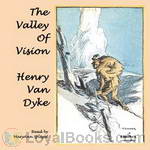 The Valley of Vision
The Valley of Vision
”Why do you choose such a title as The Valley of Vision for your book” said my friend; “do you mean that one can see farther from the valley than from the mountain-top?” This question set me thinking, as every honest question ought to do. Here is the result of my thoughts, which you will take for what it is worth, if you care to read the book. The mountain-top is the place of outlook over the earth and the sea. But it is in the valley of suffering, endurance, and self-sacrifice that the deepest visions of the meaning of life come to us. | |
By: Henry Vizetelly | |
|---|---|
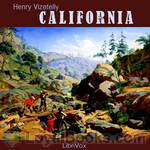 California
California
Vizetelly, writing under the pseudonym J. Tyrwhitt Brooks, recalls an expedition to California he took between 1847-1848 . Originally, he planned to enlist as a surgeon for the US Army during the Mexican war, but conflicts had ended by the time he applied. In a quick change of plans, he joined a group of prospectors on their way to the newly found gold fields of California. While he might not find service in the military, his training as a physician made him a valuable addition to the ragtag team of explorers... | |
By: Henry W. Lucy (1845-1924) | |
|---|---|
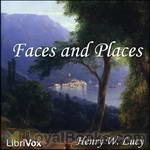 Faces and Places
Faces and Places
Faces and Places is a collection of articles on nineteenth century travel, events and personalities by the British journalist Henry Lucy, who wrote for the Daily News, a London newspaper. His open letter To Those About to Become Journalists rings as true today as when it was written.The first article, “Fred” Burnaby, includes a lively account of a balloon trip, while Night and Day on the Cars in Canada and Easter on Les Avants relate Lucy’s experiences of rail travel at that time. Other travel tales (A Night on a Mountain, Mosquitoes and Monaco, and Oysters and Arcachon) provide an insight into the Victorian Englishman’s attitude to Europe... | |
 East by West: a Journey in the Recess
East by West: a Journey in the Recess
East by West: a Journey in the Recess is an account of British journalist Henry Lucy's travels across America and on to the Far East during the parliamentary recess in 1883. Lucy was one of the most influential journalists of his day and, as "Toby M.P.", a noted humorist in Punch magazine. His acute powers of observation and light touch make this a most engaging book. It is a fascinating insight into the Englishman's travels abroad within two decades of the American Civil War and the end of Japanese isolationism... | |
By: Henry Watson Wilbur (1851-1914) | |
|---|---|
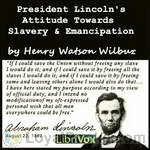 President Lincoln's Attitude Towards Slavery and Emancipation
President Lincoln's Attitude Towards Slavery and Emancipation
A review of events prior to, during and following the American Civil War bringing an insightful perspective on Lincoln's true attitude toward slavery and emancipation. | |
By: Herbert Allen Giles (1845-1935) | |
|---|---|
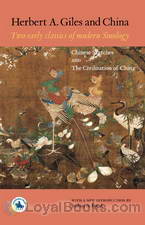 China and the Chinese
China and the Chinese
Herbert Allen Giles (1845-1935) spent several years as a diplomat in China and in 1897 was appointed Cambridge University’s second professor of Chinese. His published works cover Chinese language and literature, history and philosophy. This series of lectures, published as “China and the Chinese”, was given at Columbia University in 1902, to mark the establishment of a Chinese professorship there. The lectures were not intended for the specialist, more to urge a wider and more systematic study of China and its culture, and to encourage new students into the field... | |
By: Herbert Francis Peyser (1886-1953) | |
|---|---|
 Schubert And His Works
Schubert And His Works
This is a short introduction to Franz Schubert’s life and works. “…to give the casual radio listener a slight idea of Schubert’s inundating fecundity and inspiration. Like Bach, like Haydn, like Mozart, Schubert’s capacity for creative labor staggers the imagination… Volumes would not exhaust the wonder of his myriad creations. If this tiny book serves to heighten even a little the reader’s interest in such songs, symphonies, piano or chamber works of Schubert as come to his attention over the air it will have achieved the most that can be asked of it.” This book was published by The Philharmonic Symphony Society of New York. | |
 Hector Berlioz; A Romantic Tragedy
Hector Berlioz; A Romantic Tragedy
How much more futile is it to attempt on the minuscule scale of the following tiny, if rambling, pamphlet to touch upon even a thousandth of those achievements and unremitting conflicts which entered into the texture of this master’s agitated and inharmonious life! Actually, it aims to do no more than contribute a mite toward a larger interest in the writings and the great mass of insufficiently discovered compositions of a Romanticist whose labors are still surprisingly unrecognized art works of the future. | |
By: Herbert J. Hall (1870-1923) | |
|---|---|
 The Untroubled Mind
The Untroubled Mind
A very wise physician has said that “every illness has two parts—what it is, and what the patient thinks about it.” What the patient thinks about it is often more important and more troublesome than the real disease. What the patient thinks of life, what life means to him is also of great importance and may be the bar that shuts out all real health and happiness. The following pages are devoted to certain ideals of life which I would like to give to my patients, the long-time patients who have especially fallen to my lot. | |
By: Herbert Spencer (1820-1903) | |
|---|---|
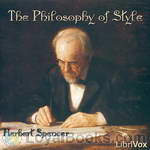 The Philosophy of Style
The Philosophy of Style
“The Philosophy of Style,” explored a growing trend of formalist approaches to writing. Highly focused on the proper placement and ordering of the parts of an English sentence, [Spencer] created a guide for effective composition. Spencer’s aim was to free prose writing from as much “friction and inertia” as possible, so that the reader would not be slowed by strenuous deliberations concerning the proper context and meaning of a sentence. | |
By: Hereward Carrington (1880-1958) | |
|---|---|
 Your Psychic Powers and How to Develop Them
Your Psychic Powers and How to Develop Them
Instructions in how to develop your psychic powers including telepathy, clairvoyance, self-projection, reincarnation, and other topics. Seriously. "It must be distinctly understood … that I believe the vast bulk of the material presented in this book to be sound and helpful; the practical instructions are good, and the reader cannot go far wrong in following them. May he develop his own psychic powers, and gain light and understanding thereby!" (From Author’s Preface) | |
By: Hermann Gunkel | |
|---|---|
 The Legends of Genesis
The Legends of Genesis
The Legends of Genesis is the English translation of the introduction to Gunkel’s massive commentary, Genesis. Gunkel uses form critical analysis on the text of Genesis to determine the various genres of the biblical legends and their significance to the authors. Gunkel also uses form criticism to uncover buried clues as to the constituent sources of the text. Gunkel offers his hypothesis to explain how the various sources came to be combined and redacted, and how the text later came to be attributed to Moses. | |
By: Herodotus of Halicarnassus (440 BC) | |
|---|---|
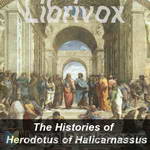 Herodotus' Histories
Herodotus' Histories
The Histories of Herodotus of Halicarnassus is considered the first work of history in Western literature. Written about 440 BC, the Histories tell the story of the war between the Persian Empire and the Greek city-states in the 5th century BC. Herodotus traveled extensively around the ancient world, conducting interviews and collecting stories for his book. The rise of the Persian Empire is chronicled, and the causes for the conflict with Greece. Herodotus treats the conflict as an ideological one, frequently contrasting the absolute power of the Persian king with the democratic government of the Greeks. | |
By: Hilaire Belloc (1870-1953) | |
|---|---|
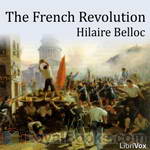 The French Revolution
The French Revolution
“It is, for that matter, self-evident that if one community decides in one fashion, another, also sovereign, in the opposite fashion, both cannot be right. Reasoning men have also protested, and justly, against the conception that what a majority in numbers, or even (what is more compelling still) a unanimity of decision in a community may order, may not only be wrong but may be something which that community has no authority to order since, though it possesses a civil and temporal authority, it acts against that ultimate authority which is its own consciousness of right... | |
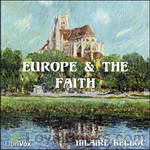 Europe and the Faith
Europe and the Faith
The Catholic brings to history (when I say "history" in these pages I mean the history of Christendom) self-knowledge. As a man in the confessional accuses himself of what he knows to be true and what other people cannot judge, so a Catholic, talking of the united European civilization, when he blames it, blames it for motives and for acts which are his own. He himself could have done those things in person. He is not relatively right in his blame, he is absolutely right. As a man can testify to his own motive so can the Catholic testify to unjust, irrelevant, or ignorant conceptions of the European story; for he knows why and how it proceeded... | |
 First and Last
First and Last
“When a man weighs anchor in a little ship or a large one he does a jolly thing! He cuts himself off and he starts for freedom and for the chance of things. He pulls the jib a-weather, he leans to her slowly pulling round, he sees the wind getting into the mainsail, and he feels that she feels the helm. He has her on a slant of the wind, and he makes out between the harbour piers.” (quotation from Hilaire Belloc) | |
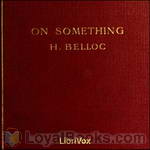 On Something
On Something
“Now that story is a symbol, and tells the truth. We see some one thing in this world, and suddenly it becomes particular and sacramental; a woman and a child, a man at evening, a troop of soldiers; we hear notes of music, we smell the smell that went with a passed time, or we discover after the long night a shaft of light upon the tops of the hills at morning: there is a resurrection, and we are refreshed and renewed.” – Hilaire Belloc | |
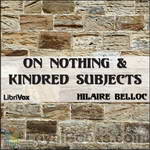 On Nothing & Kindred Subjects
On Nothing & Kindred Subjects
“I knew a man once, Maurice, who was at Oxford for three years, and after that went down with no degree. At College, while his friends were seeking for Truth in funny brown German Philosophies, Sham Religions, stinking bottles and identical equations, he was lying on his back in Eynsham meadows thinking of Nothing, and got the Truth by this parallel road of his much more quickly than did they by theirs; for the asses are still seeking, mildly disputing, and, in a cultivated manner, following the... | |
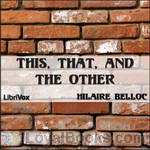 This, That, and the Other
This, That, and the Other
“When Fame comes upon a man well before death then must he most particularly beware of it, for is it then most dangerous. Neither must he, having achieved it, relax effort nor (a much greater peril) think he has done his work because some Fame now attaches thereto.” -- Hilaire Belloc | |
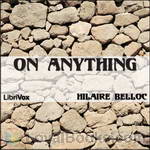 On Anything
On Anything
"Long before I knew that the speech of men was misused by them and that they lied in the hearing of the gods perpetually in those early days through which all men have passed, during which one believes what one is told, an old and crusty woman of great wealth, to whom I was describing what I intended to do with life (which in those days seemed to me of infinite duration), said to me, ( You are building castles in Spain.' I was too much in awe of this woman not on account of the wealth, but on account... | |
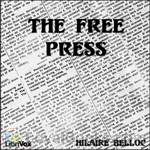 The Free Press
The Free Press
I propose to discuss in what follows the evil of the great modern Capitalist Press, its function in vitiating and misinforming opinion and in putting power into ignoble hands; its correction by the formation of small independent organs, and the probably increasing effect of these last. (Introduction by Hilaire Belloc) | |
By: Hippolyte Dreyfus-Barney (1873-1928) | |
|---|---|
 The Universal Religion: Bahaism - Its Rise and Social Import
The Universal Religion: Bahaism - Its Rise and Social Import
“Bahaism is not a new religion,” writes Hippolyte Dreyfus-Barney, “It is religion renewed… it does not pretend to represent the whole Truth; on the contrary, it recognises Truth in fundamental principles which are the basis of all former dispensations, and which for that very reason form the standpoint of concord too long lost sight of. And it requires people to renounce ancient superstitions, to abandon the dead letter in order to be penetrated by the living and vivifying spirit, then by... | |
By: Hippolytus of Rome (170-235) | |
|---|---|
 Treatise on Christ and Antichrist
Treatise on Christ and Antichrist
In this late second century treatise, Hippolytus gives an excellent summary of Early Christian thinking on the subject of the antichrist. Familiar texts from Daniel and Revelation are treated together with his own current events to give a unique perspective. (Summary by Jonathan Lange) | |
By: Hiram Bingham (1875-1956) | |
|---|---|
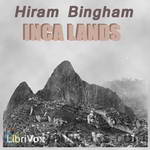 Inca Lands
Inca Lands
Prof. Hiram Bingham of Yale Makes the Greatest Archaeological Discovery of the Age by Locating and Excavating Ruins of Machu Picchu on a Peak in the Andes of Peru.There is nothing new under the sun, they say. That is only relatively true. Just now, when we thought there was practically no portion of the earth's surface still unknown, when the discovery of a single lake or mountain, or the charting of a remote strip of coast line was enough to give a man fame as an explorer, one member of the daredevil explorers' craft has "struck it rich... | |
 Explorer in the Air Service
Explorer in the Air Service
Explorer Hiram Bingham discovered Machu Picchu in 1911, as recounted in his book Inca Lands, now released on Librivox at http://librivox.org/inca-lands-by-hiram-bingham/. In 1917, he became an aviator and organized the United States Schools of Military Aeronautics at eight universities to provide ground school training for aviation cadets, and then in Issoudun, France, Bingham commanded the primary Air Service flying school. He became a supporter of the Air Service in their post-war quest for independence from the Army and supported that effort, in part, with the publication of this book of his wartime experiences published in 1920 by Yale University Press. | |
By: Hiram Chase | |
|---|---|
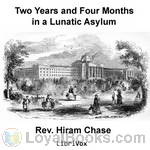 Two Years and Four Months in a Lunatic Asylum
Two Years and Four Months in a Lunatic Asylum
Hiram Chase is a well liked Reverend in a small ministry in Utica. When his mental and physical health deteriorates, he is taken to Utica lunatic asylum. After his stay in the asylum, Hiram documents his experiences and those of other patients in the asylum. He describes his daily routine and the negative experiences he had, along with praising certain individuals whom he met during his "Two Years and Four Months in a Lunatic Asylum". | |
By: Horatio Nelson | |
|---|---|
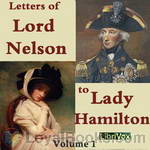 The Letters of Lord Nelson to Lady Hamilton
The Letters of Lord Nelson to Lady Hamilton
Horatio Nelson, 1st Viscount Nelson, 1st Duke of Bronté, KB (29 September 1758 – 21 October 1805) was an English flag officer famous for his service in the Royal Navy, particularly during the Napoleonic Wars. He won several victories, including the Battle of Trafalgar in 1805, during which he was killed. These are the letters that he wrote to Lady Hamilton, with whom he was having a notorious affair until his death in 1805. | |
By: Horatius Bonar (1808-1889) | |
|---|---|
 Everlasting Righteousness
Everlasting Righteousness
... or How Shall Man Be Just with God?How does salvation work? How does a righteous God declare an unrighteous person to be righteous in His sight? In this comprehensive and devotional study of justification by faith alone in the Person and work of the Lord Jesus Christ, Horatius Bonar answers these questions in a clear and wonderful way. Bonar has been called the prince of Scottish hymn writers. Quoting one of the 600 hymns he wrote, here is "righteous peace securely made" Additional proof-listening by Kimberly Krause. | |
By: Hugh Tempest Sheringham (1879-1930) | |
|---|---|
 Angler's Hours
Angler's Hours
One of the classic British books about angling. The author’s love was fly fishing—“…while there are trout, life is worth living…” but he was no snob. An Angler’s Hours includes several chapters about coarse fishing as well as a surprising account of the Japanese tenkara method as used in England. Sheringham's style is similar to that of the much-loved B.B. with a dash of P.G. Wodehouse. He doesn’t bore us with technical details but writes of the simple joys of angling—"a man who gazes at the wares in a tackle-shop on a sunny day in April has certainly a fishing expedition in prospect”—not forgetting the pleasure of a nice pot of tea at the end of the day... | |
By: Hugh Walpole (1884-1941) | |
|---|---|
 Joseph Conrad
Joseph Conrad
This is a literary biography of Joseph Conrad (1857 – 1924) who is regarded as one of the greatest novelists in English. He was granted British nationality in 1886, but always considered himself a Pole. Though he did not speak English fluently until he was in his twenties (and always with a marked accent), he was a master prose stylist who brought a distinctly non-English sensibility into English literature. He wrote stories and novels, many with a nautical setting, that depict trials of the human spirit... | |
 Jeremy And Hamlet: A Chronicle Of Certain Incidents In The Lives Of A Boy, A Dog, And A Country Town
Jeremy And Hamlet: A Chronicle Of Certain Incidents In The Lives Of A Boy, A Dog, And A Country Town
Hamlet is Jeremy’s dog. This 1923 book is Hugh Walpole’s second volume in his Jeremy semi-autobiographical trilogy , Jeremy at Crale ), about a ten-year-old English boy. One commentator wrote this of the first book: “With affectionate humor, Mr. Walpole tells the story of Jeremy and his two sisters, Helen and Mary Cole, who grow up in Polchester, a quiet English Cathedral town…. Mr. Walpole has given his narrative a rare double appeal, for it not only recreates for the adult the illusion of his own happiest youth, but it unfolds for the child-reader a genuine and moving experience with real people and pleasant things... | |